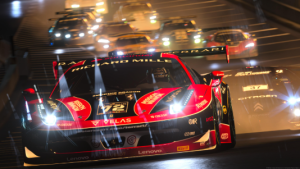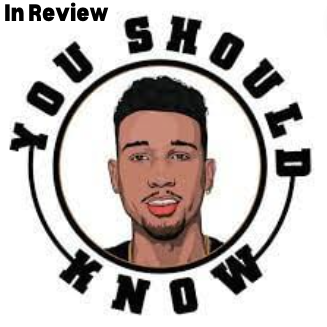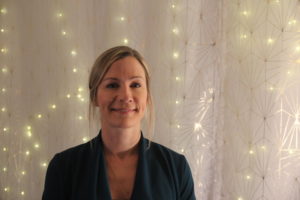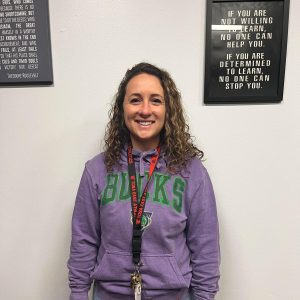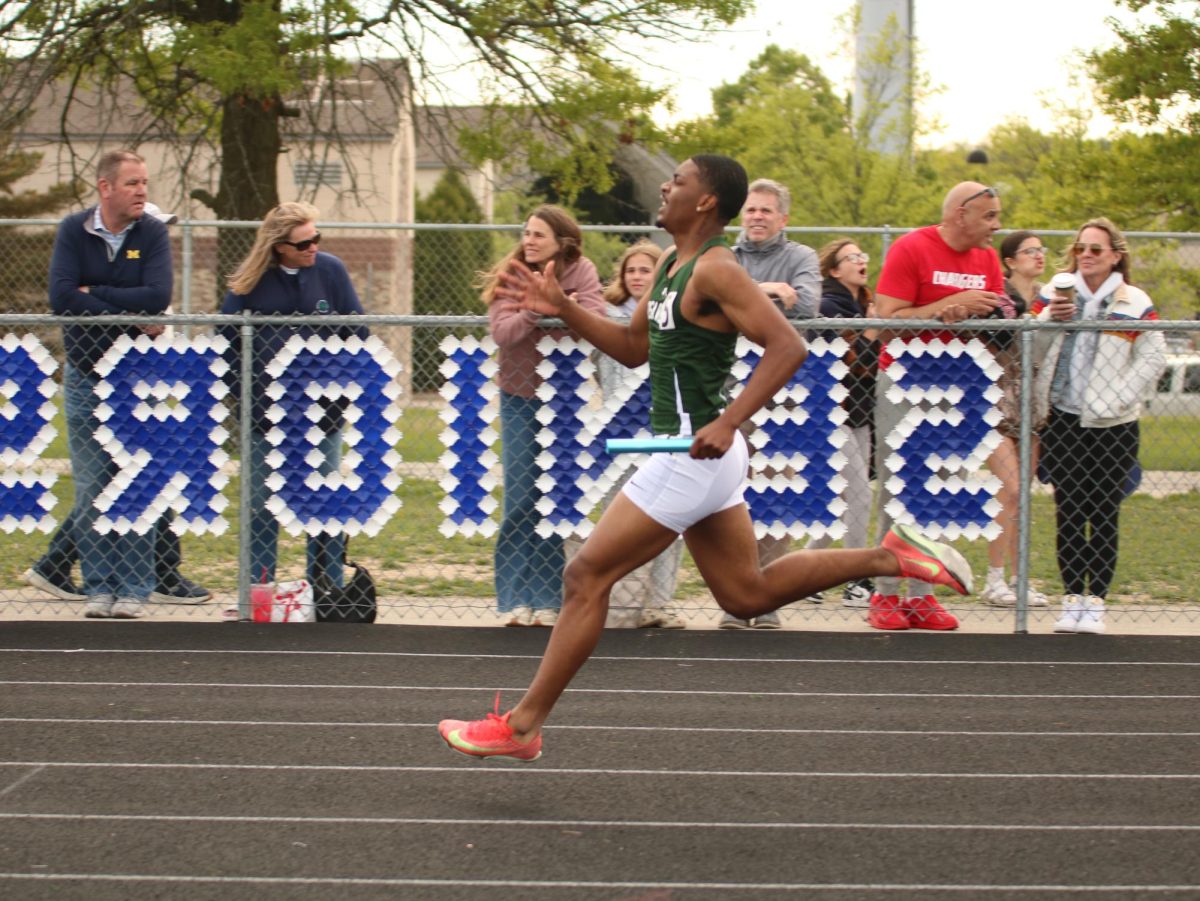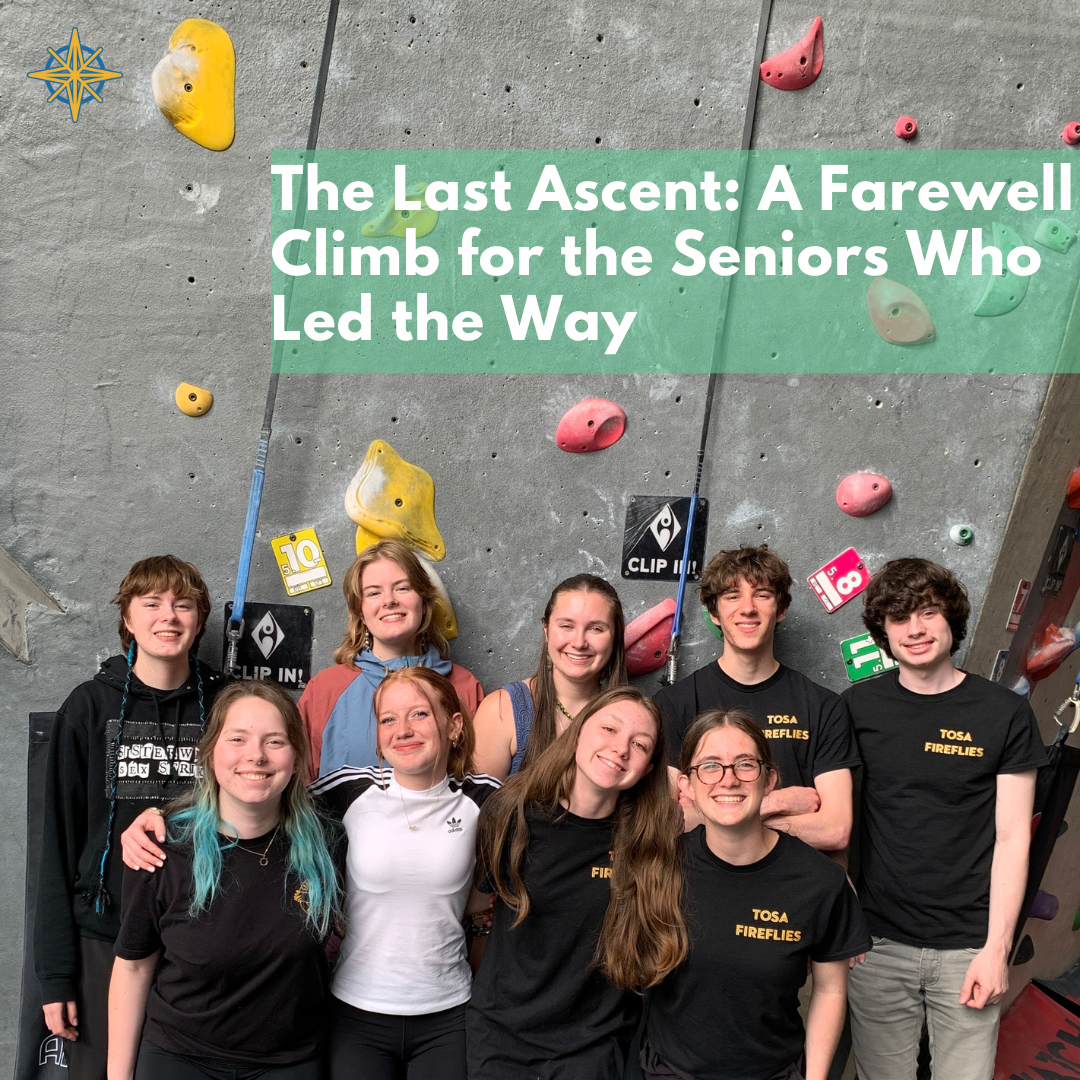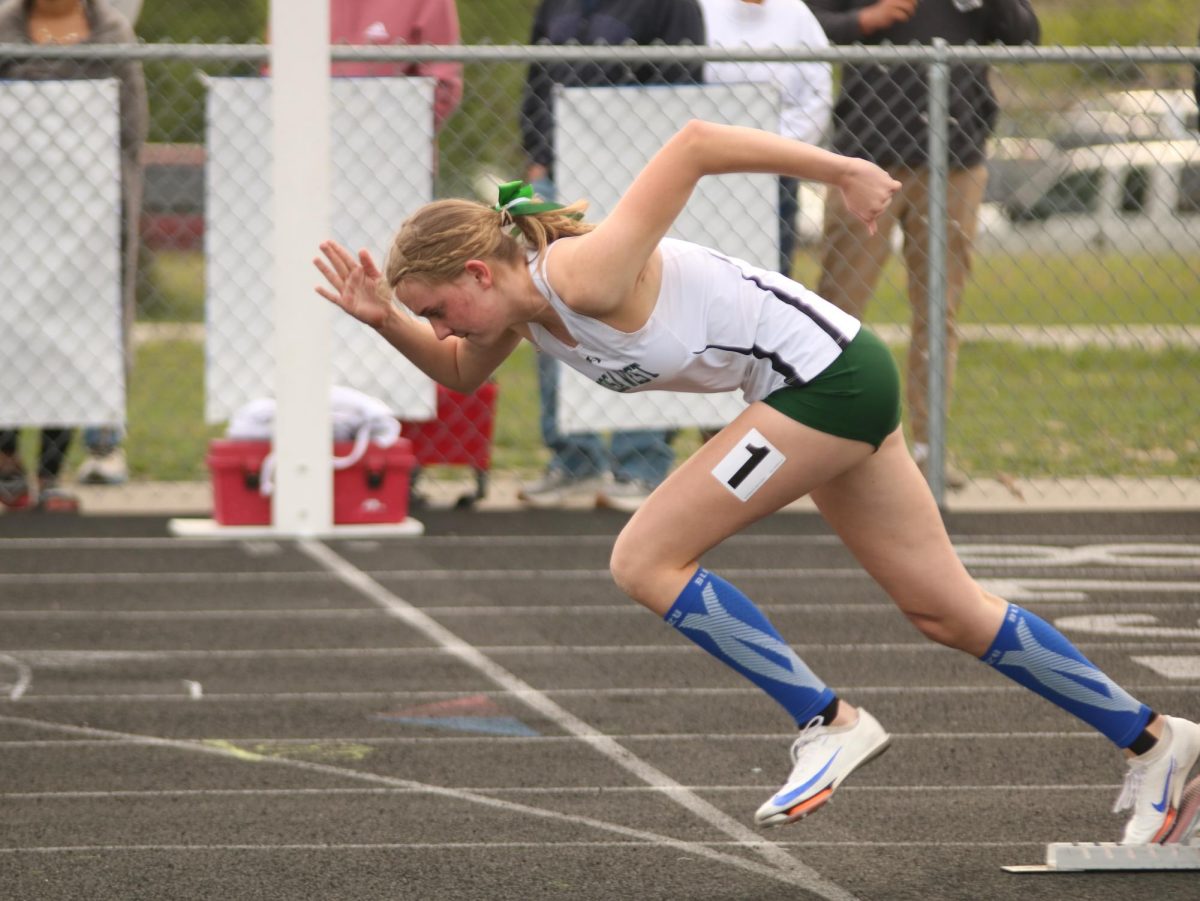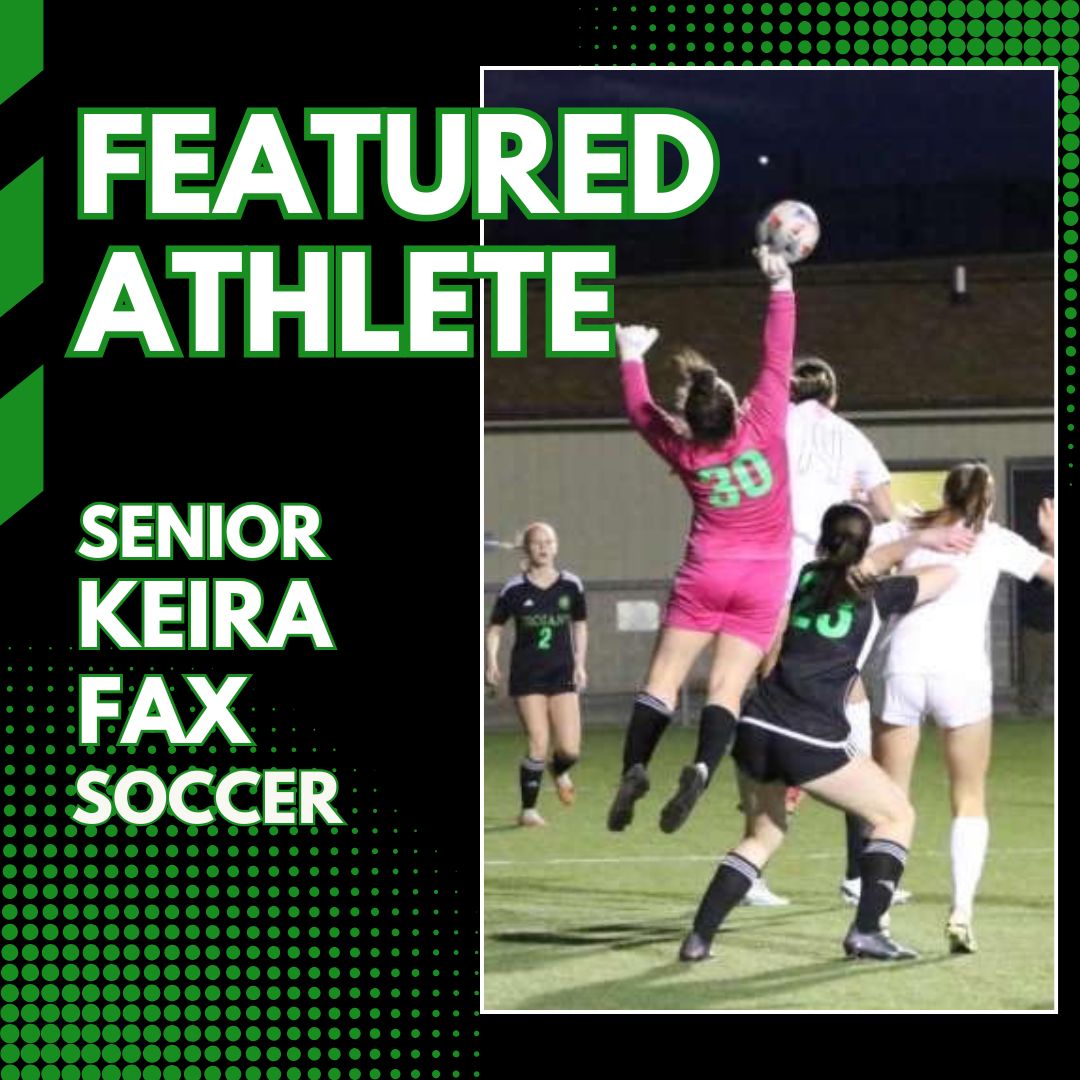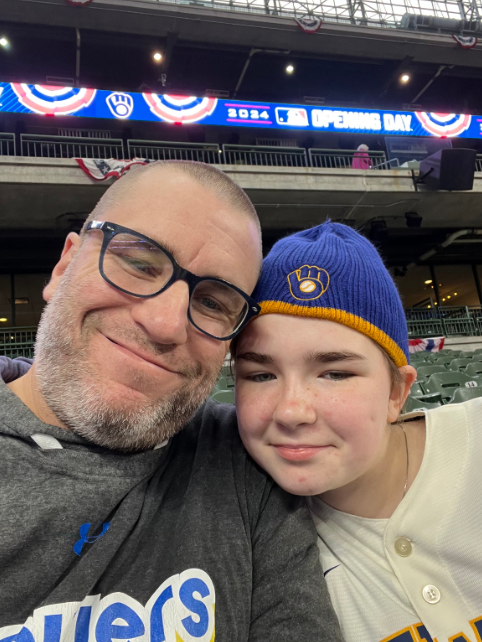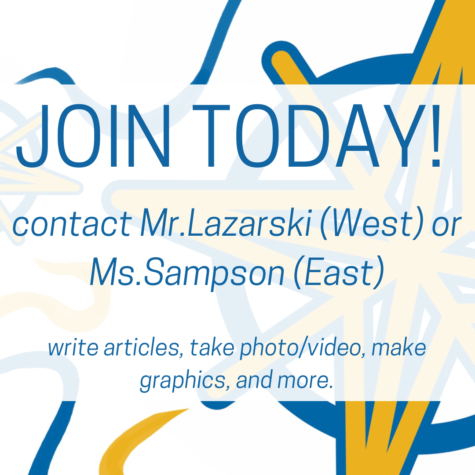Behind the Desk: Mr. Hull
November 3, 2022
How did you adapt to be a better teacher during the pandemic? So how did you adapt to continue teaching as best you can?
So those were some weird times at first. I mean, nobody knew what to do. Because we had all taken baby steps into virtual education in various ways. But we needed to just jump into the deep end. So what we ended up doing and in my own program, is we came up with a kind of a self guided framework for studying music. So there’s a lot of solo work that we did and that so we traded videos back and forth. Teachers and kids just kind of get things so we could figure out you know how to improve like that. We found out very quickly that it’s very difficult to make music as a group, there’s just not very much software that’s set up for that. So we tried that. And so we kind of had to move to an individual practice performance support kind of model, but that also we could do other projects like composition and, and working with digital music. And so we did that as well, but it was a bit of a challenge, especially that first half of the year.
Do you think a lot of people, because I know soloing is kind of a thing in concert that’s like a prize position. So do you think that going into that format was challenging for some people or some people really, really loved it?
Oh, absolutely. Yeah, it was hard. So we tried to make it not as stressful for folks that didn’t want to play by themselves in front of others by not really making all those recordings of videos public. So we kept that as kind of a private communication sort of thing. Still, I mean, some folks are just nervous about recording and they did not necessarily have a good time. Other folks, I think, saw it as an opportunity to directly ask questions and feedback that maybe they were more reluctant to do in a group setting. And so I think what, hopefully we all learned about virtual education is that it’s a really important tool, and that it can help enhance what we normally do. So there’s a population of students that really benefits from it. And then there’s a population of students that kind of struggle with it. We just need to figure out how to use the best of all these new tools that we now have to support everybody.
What is your favorite instrument?
Viola, yeah, the Viola for sure. That’s my favorite.
So is there an area of music that you don’t like?
I like learning new things, so you know, I don’t want to give you that answer that people give, “I like all music”. But yeah, you know, what I like about music is what people put into it, what they study and what they bring out of it. And that’s kind of like outside of genre. So like, if somebody’s really passionate about a style of music that I don’t know much about, you know, I tend to get drawn into and try to learn more about it just because this person is really into it.
Is there an instrument that you don’t play that you want to learn?
You know, I’m not very good at guitar. I’d like to learn more about guitar. That is something that would be helpful. And also, I’m not very good at piano, which would really make my job easier sometimes, so those two. I am probably more inclined to work on acoustic guitar.
So what’s it like to teach here at Tosa West compared to your other jobs?
It’s a great question. So there are some differences. The basics are all the same. I get to work with highly talented student musicians. And that’s the biggest thing. I teach a lot of the same things. So that’s similar, but every place has its own culture and its own traditions. And so part of my job this year is going to be for me to learn all those cultures and traditions and to make sure that I am supporting and valuing that, as well as you know, the stuff that I bring with me
What brought you to West?
So I wasn’t really looking that actively for another job, but I did happen to see that this one came open. And the reason why this job attracted me was because of the high quality of the music program. And the school has a very good reputation for doing all the right things. So I wanted to come check it out. And I liked what I saw. So I’m happy to be here.
What do you hope that your students will remember of you?
Oh, gosh, I don’t know I can’t really spend too much time thinking about legacy. What I hope is that they have a good experience here, and that ideally, that they find some pathways to become lifelong musicians, whether they’re performers or whether they’re just really involved with music in their community.
So you go to the middle school for seventh hour on most days. So do you think it’s tedious to go back and forth like that?
You know, to be perfectly honest, I enjoy the walk. Oh, I have to get out right? It’s good to see the sky just a little bit since I have the windows down here(in the classroom). So I have to say it’s nice to be able to walk between the two buildings and have them so close.
How was your college experience?
I really enjoyed it. So when I was an undergrad, I also got a degree in Viola performance. So I was playing my instrument quite a bit. I compose so I got to work with the composition faculty. So really college was a great experience for me because I got to focus on studying, you know, my specific interests. I enjoyed the broader education aspect as well. But it was really nice to just be able to spend a lot of time in the music department and learn about education and learn about how music is put together. I then went to the Boston Universityand my degree I actually did that virtually quite a bit later. I did that after teaching for about 10 years. And that was really important to me. Going back to become a student after teaching for about a decade really kind of helped me to evaluate my practice and learn about what I was doing and I really recommend that people go back and study things that they’ve, you know, been doing professionally for a while.
Okay, so what do you wish you would learn in school about teaching that you are not taught?
So what to teach, it’s kind of hard. So my college tried really hard to give us a lot of classroom experiences. So we had observation experiences, of course student teaching, all those things you do but I mean, you just try as hard as any institution can try to prepare you especially those first five years. You know, there’s just a lot you don’t know. Just especially about just how you know schools are run, how your individual school is run and like procedures to do everything. So I suppose maybe just a little bit more time on that sort of nuts and bolts, and how the job actually works. I just don’t know how they do it. I thought my training was pretty good. But it’s just a really steep learning curve for the first few years I think no matter which way they did it.
What is it like teaching at West compared to other places?
This is my second teaching job. I was at my previous job for 17 years. So that’s also been kind of neat just to see how the perspectives are different here. And learning how things are put together differently.
What did you want to be when you were younger?
A lot of different things. I had a lot of interests. I was really interested in marine biology. It was almost that and before I came to teaching and came to teaching a little bit later, I was a performer so I played I played Viola. Professionally, I taught privately. I did that sort of thing for quite some time before I came back to finish up in music education.
Are there any notable orchestras or concerts you are in or were in during your professional career?
So right now I play pretty regularly with the Fox Valley Symphony, playing a few concerts with the Sheboygan symphony and the Manitowoc Symphony this year. I also play Irish music around town.
So why did you become a teacher when you had interest in things like marine biology and different areas?
Right? I just wanted to be able to work with music all day. So that’s probably one of the reasons that I started with just a performing career but through performing I mean you do lots of things when you freelance to put things together, right. So you know, I did recording studios, played with groups, played wedding quartets, things like that. But one of the things you usually do is usually practice with students, right. So I had a pretty big studio of private students. And then I realized after a while that I was turning down other gigs and opportunities because I didn’t want to interrupt the learning of my private students. At that point. I kind of had the realization: Wait, maybe teaching is the focus.




